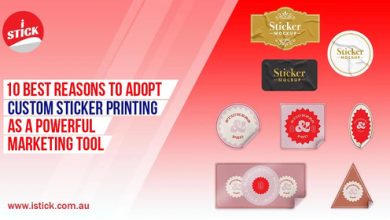
You don’t necessarily need to own a product to become a seller. To sum up, there are numerous options are available to make this workout. Private labeling is one such business model. In addition, Pavizham private labeling is a process in which you work with a third-party manufacturer. People use private labeling to create their own custom branded products. Private labeling is ideal for people and brands that already have established audiences. And it needs to find a way to start generating passive income via product sales accordingly. Pavizham group offers the best opportunity for upcoming producers for admirable business growth. There are a lot of private labeling companies in India. Let’s have a detailed look at the process below.
Advantages of Private Labeling Companies
The process includes the involvement of two or more parties. A party or a group of parties manufacture products and sold in the name of another reputed brand. Private labeling companies would be reputed brands that own a prestigious position in the market. And it also attracts the minds of people. Pavizham is a well-known brand with a strong business hold. Moreover, different variety products that sold out in the brand name.
Advantages
There is no doubt why both private labeling companies in India and manufacturers are having a mutual cooperative deal. Moreover, Private labeling has multiple advantages that span beyond simplifying the product development process. These include the following.
- Control overproduction – The production process is regulated to a great extent as the third party act as the brand’s primary producer.
- Control overpricing – Being the seller of your products you have control over price optimization. This helps with creating a healthy profit margin.
- Adaptability – Smaller retailers can move quickly to get a private label product in response to rising market demand for a new feature. Also, larger companies might not pursue a niche product.
- Control over marketing and branding –You have strong command over how to promote and package private label products before making them available for sale.
Five tips to start your private label business
Five tips to start your private label business
Whenever you want to sell your private label products, you don’t have to worry about product development—or inventory investments in many cases. Before you going to begin, you need to consider a few things.
1. Explore a niche market to sell products
The very first step you need to do is to find a niche marketplace to sell your products. There are many private label products are available. After selecting your specific niche market then start to sell your product to a niche market. You can use highly targeted marketing and advertising strategies to get your brand and products out there when you sell your product to a niche market.
2. Get a Connection with the manufacturer
Once you know what you want to sell, then the next step is to look for manufacturers and suppliers who have those items.
And then get a list of manufacturers and contact them to see if they offer private labeling. Since most of the manufacturers carry a variety of products, this strategy will authorize you to quickly source a selection of products within the niche you’re exploring.
3. Sample the goods
After getting a connection with the manufacturer, the next essential step is to check the product yourself before you’re making it available for purchase. So you’ll want to make sure the excellence of products is up to your standards and expectations.
4. Add your products to your store
When including products in your store, you’ll want to do the following:
* Write product descriptions – Product descriptions need to be precise and benefits-orientated. Product description helps people to get an idea of the product easily.
*Get high-quality product pictures – Product pictures provide consumers an idea of what the item looks like—it’s the exceptional they can get without being able to see the product in individual. Sometimes the manufacturer can provide photos to you.
*Decide your pricing method – It’s crucial state to decide the price of the product. And the decided price should not exceed the expectation of the consumers. The value of the product should be equal to the price of the product.
5. Establish and market your store
When you’re ready to reveal your shop and private label products to the public, it’s not as easy as turning on a switch. You have to build focus and drive attention to your store.
Things to consider: Private label agreements
Agreements of private labeling are legally binding documents on the manufacturer and the retail business owner. On behalf of this agreement, the manufacturer agrees to produce/ manufacture the needed products that will finally be marketed under the branding of the retail business owner.
The process of private labeling is completely legal as long as both parties have agreed on the terms and conditions set between them.
Structured and well-defined private label agreement includes clauses such as payment terms, product orders, infringing of government laws by each other, and more.
There are also some certification requirements to be fulfilled by the retailers before a product can be sold in the market.
The main important requirement is to fill out the private label application is to confirm the authenticity of the products being sold. The importance of certification is to be able to verify the private label products as they can be identical to the original versions being sold in the market. Another remarkable thing to note is that there is no specific governing law for private labels in India.





